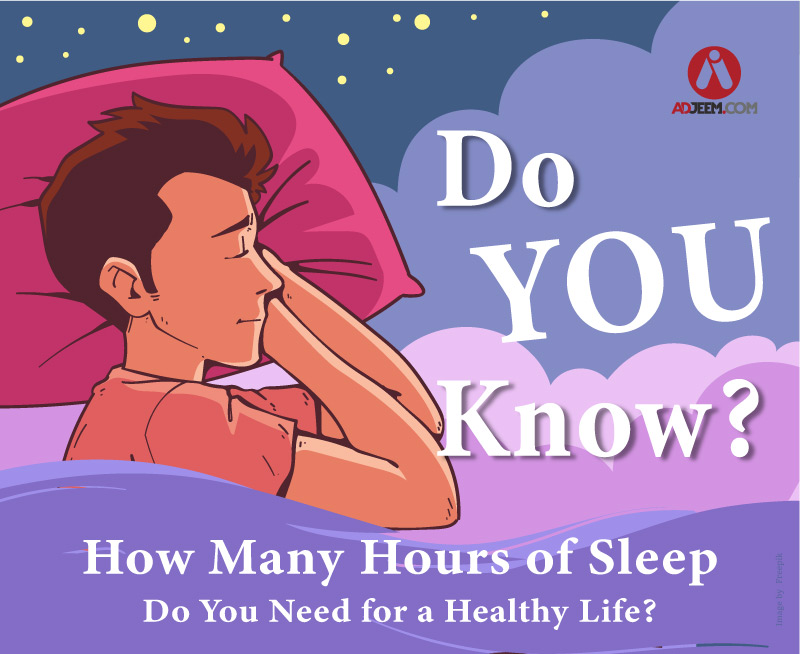
How Many Hours of Sleep Do You Need for a Healthy Life?
Sleep is a vital aspect of our daily routine, playing an essential role in maintaining good health and overall well-being. However, with the hustle and bustle of daily life, it can be easy to neglect the importance of quality sleep. In this article, we will explore the recommended number of hours of sleep for a healthy life, along with tips for achieving the best sleep possible.
Recommended Hours of Sleep for Different Age Groups The amount of sleep a person needs varies depending on their age, lifestyle, and individual needs. Here are the recommended hours of sleep for different age groups:
- New-borns (0-3 months): 14-17 hours per day
- Infants (4-11 months): 12-15 hours per day
- Toddlers (1-2 years): 11-14 hours per day
- Pre-schoolers (3-5 years): 10-13 hours per day
- School-age children (6-13 years): 9-11 hours per day
- Teenagers (14-17 years): 8-10 hours per day
- Adults (18-64 years): 7-9 hours per day
- Older adults (65 years and older): 7-8 hours per day
Tips for Achieving the Best Sleep
Possible Getting enough sleep is essential, but it’s equally important to get quality sleep. Here are some tips for achieving the best sleep possible:
- Stick to a consistent sleep schedule: Try to go to bed and wake up at the same time every day, even on weekends. This helps regulate your body’s internal clock, making it easier to fall asleep and wake up naturally.
- Create a relaxing sleep environment: Make sure your bedroom is cool, dark, and quiet. Use blackout curtains or an eye mask to block out light, and earplugs or a white noise machine to drown out any noise.
- Limit screen time before bed: The blue light emitted by electronic devices can interfere with your body’s production of melatonin, a hormone that helps regulate sleep. Try to avoid using devices such as smartphones, tablets, or laptops for at least an hour before bedtime.
- Exercise regularly: Regular exercise can help you fall asleep more easily and improve the quality of your sleep. Just make sure to finish exercising at least a few hours before bedtime to give your body time to wind down.
- Practice relaxation techniques: Techniques such as deep breathing, meditation, or progressive muscle relaxation can help reduce stress and promote relaxation, making it easier to fall asleep.
- Avoid large meals before bed: Large meals can interfere with sleep and lead to night-time awakenings. Try to eat a light dinner a few hours before bed, and limit alcohol consumption.
Medical Benefits of Getting Enough Sleep
Getting enough sleep has numerous medical benefits, including:
- Improved memory and cognitive function
- Better mood and emotional regulation
- Reduced risk of obesity and weight gain
- Lower risk of cardiovascular disease and diabetes
- Stronger immune system
Sleep in the UAE
In the UAE, many people lead busy and demanding lives, which can make it difficult to get enough quality sleep. However, with a few adjustments to your daily routine, it’s possible to prioritize sleep and enjoy the many benefits it offers. Some tips for getting better sleep in the UAE include:
- Keeping your bedroom cool and comfortable, especially during the hot summer months
- promote relaxation and restful sleep
- Practicing stress-reducing activities such as yoga or meditation to help you unwind before bed
In addition, the UAE government has taken steps to promote better sleep habits among its citizens, recognizing the importance of sleep in maintaining overall health and wellness. For example, in 2019, Dubai launched a sleep initiative aimed at educating the public about the importance of good sleep habits and providing resources to help people improve their sleep.

what are the side effect if you will not take well sleep?
Not getting enough quality sleep can have numerous negative effects on your physical and mental health. Here are some of the side effects that can occur if you consistently fail to get enough sleep:
- Impaired cognitive function: Lack of sleep can impair your ability to concentrate, think clearly, and make decisions.
- Poor memory: Sleep is essential for consolidating memories, and lack of sleep can lead to difficulty with recall and retention.
- Mood disturbances: Sleep deprivation can lead to irritability, mood swings, and increased feelings of stress and anxiety.
- Increased risk of accidents and injuries: Lack of sleep can impair your reaction time, coordination, and judgment, increasing your risk of accidents and injuries.
- Weakened immune system: Sleep is crucial for the proper functioning of the immune system, and lack of sleep can weaken your body’s defences against illness and infection.
- Weight gain: Lack of sleep can disrupt the hormones that regulate appetite and metabolism, leading to increased hunger and a greater risk of weight gain.
- Increased risk of chronic diseases: Chronic sleep deprivation has been linked to an increased risk of cardiovascular disease, diabetes, and other chronic health conditions.
It’s important to prioritize sleep and make sure you’re getting enough quality rest to avoid these negative side effects and maintain good physical and mental health.
#HealthySleep #SleepBenefits #SleepDeprivation #SleepInitiative #UAEHealth #HealthyLiving #SleepAwareness #WellnessBlog #HealthyHabits #GoodSleep #SleepEducation #HealthyLifestyle #HealthyUAE #UAEHealthyLiving
